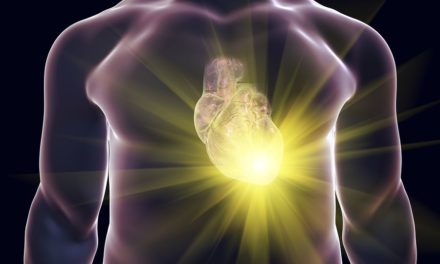TL;DR
- Heart failure is common and deadly; conventional care is often limited to symptom control.
- CoQ10 meaningfully improves outcomes. Q-SYMBIO study: ↓ CV death 43%, ↓ all-cause death 42%, fewer hospitalizations, improved NYHA class (this means patients improve enough to be classified as having less severity) [1].
- Diuretics and other cardiac meds can deplete thiamin and magnesium, which worsens function; supplementation can improve cardiac function and symptoms.
This article is educational and not medical advice. Heart failure patients should work with their a physicain and a natural health practitioner.
Why This Matters
About 6.7 million U.S. adults live with heart failure, with prevalence projected to 8.5 million by 2030. In 2022 it was mentioned on 457,212 death certificates (≈14% of all deaths). Natural healthcare can support physiology—mitochondria [cell energy], micronutrients, and medication-induced depletions—where drugs often don’t.
CoQ10: The Mitochondrial Lever
What it is: It is vital for energy production in the cell. It is especially important for cells that use a lot of energy—like the cells in heart muscle. Levels fall with age and certain drugs.
Interaction safety (important): CoQ10 may reduce warfarin’s effect—patients on warfarin should have INR monitored when starting CoQ10.
Flagship evidence: Q-SYMBIO (100 mg three times daily, total 300 mg):
- A decrease in cardiovascular death by 43% vs placebo
- 42% decrease in all-cause mortality
- Fewer serious cardiac events (15% vs 26%) and unplanned hospitalizations (8% vs 14%)
- Classified as having a less severe form of the disease: NYHA class improved more often in CoQ10 group; one patient moved IV → I. [1] (: “New York Heart Association (NYHA) class (I–IV, higher = more severe).”
- Additional supportive studies and reviews: [2-7].
Clinical notes
- Typical trial dose: 100 mg 3×/day (300 mg/day) with food/fat.
- Consider ubiquinol in older patients or with malabsorption.
- If patient is on a cholesterol lowering medication, discuss supplementing with CoQ10 because these drugs prevent the body from making it.
The Missing Logic in Cardiology: Statins, CoQ10 & heart failure
Statins (cholesterol lowering medications) block the mevalonate pathway—the same pathway your body uses to make coenzyme Q10. We know two things:
- Statins lower CoQ10, and
- Worse heart failure correlates with lower CoQ10.
Pretending statins are neutral for the failing heart ignores basic physiology. We’ve “statinized” the population and still watched heart failure soar. At minimum, every statin patient—especially those with heart failure—deserves CoQ10 repletion and an honest discussion of risks, benefits, and alternatives. Drugs don’t get a free pass just because they’re popular.
If You Take a Statin
- If a you are on a statin, try CoQ10 (often 100 mg 3×/day with meals, or equivalent ubiquinol) and monitor fatigue, muscle symptoms, exercise tolerance, and NYHA class. Caution:
- If risk is low (primary prevention), revisit NNT/absolute risk with the patient and emphasize lifestyle + mitochondrial support.
- For HF patients already on statins, treat CoQ10 repletion as standard supportive care, not optional.
Warfarin users:
CoQ10 can reduce warfarin’s effect, discuss this with your physician.
Bottom line: Heart failure is a mitochondrial disease as much as it is a hemodynamic one. Protect the mitochondria. Replete what the drugs deplete.
Drug–Nutrient Depletions You Can Fix
Thiamin (Vitamin B1)
- Loop diuretics (e.g., furosemide/Lasix®) deplete thiamin.
- Study of 23 CHF patients on furosemide: 21 were thiamin-deficient.
- Double-blind trial: IV thiamin 200 mg/day improved cardiac function in heart failure patients by 22% over 7 weeks (vs placebo).
- Wet beriberi = thiamin deficiency with cardiomyopathy. Similar to heart failure.
Practical: Consider benfotiamine (fat-soluble thiamin) or thiamin HCl. High doses are usually fine because thiamin is water-soluble.
Magnesium
- Heart-failure patients commonly show low serum and muscle magnesium
- Deficiency contributes to irregular heartbeat, the health of the blood vessels, insulin resistance (click here for more on insulin resistance), and poorer outcomes.
Practical: Use an absorbable form (e.g., citrate, malate, glycinate, taurinate). Specify elemental mg per capsule on your protocol (e.g., 120–200 mg elemental at night; adjust to bowel tolerance). Make sure there is good kidney function before dosing magnesium—high doses can cause problems for people with kidney failure.
Optional Add-Ons (Emerging/adjunctive)
- Magnesium orotate / orotic acid: pilot and mechanistic data suggest cardioprotective effects and improved LV recovery [8-12].
- Anti-inflammatory diet: every CVD pathway involves inflammation; align with your Roadmap.
A Simple, Evidence-Informed Office Protocol
(Coordinate with the cardiologist; monitor BP, weight, edema, symptoms.)
- CoQ10: 100 mg 3×/day with meals (or equivalent ubiquinol) [1-7].
- Thiamin/Benfotiamine: daily repletion; consider higher dosing initially when on loop diuretics.
- Magnesium (elemental): select form; start low and titrate (evening dosing often best).
- Dietary anti-inflammatory plan (Roadmap to Health).
- Quality control: Use good quality supplements from a company you trust.
Author’s note: There are other things that have been studied and found to improve heart failure. These include ribose, Hawthorne, L-carnitine, omega-3 fatty acids, and other supplements. There are articles about these supplements throughout the site. The idea here is to give an effective program without having to take dozens of supplements.
FAQ
Think of this as supporting the heart’s energy system. Medicines treat disease; these steps help the cells work better.
Does CoQ10 replace heart-failure drugs?
Do not think of anything here as “treatment”. Think in terms of taking straw off the camel’s back. We are improving the health of heart cells. If a physician is “treating” you, that is something else. Trials added CoQ10 on top of standard therapy and still saw fewer deaths/hospitalizations.
Is the Q-SYMBIO dose the same as what I buy at the store?
The trial used 100 mg three times daily with meals (total 300 mg/day). Match that with clinician-grade CoQ10/ubiquinol. Don’t buy just any CoQ10—there is a lot of fraud in the supplement industry. Find a company you can trust.
Why thiamin and magnesium?
Loop diuretics and other cardiac meds can deplete them; supplementation has improved heart function, symptoms, and normalized heart rhythm in studies.
I’m on a statin. Should I take CoQ10?
Discuss with your clinician—especially if you are taking “blood thinners”. CoQ10 can reduce their effect. Statins reduce the body’s CoQ10 production; many practitioners use it to support the health of the heart cells.
Footnotes.
- JACC Heart Fail. 2014 Dec;2(6):641-9. The effect of coenzyme Q10 on morbidity and mortality in chronic heart failure: results from Q-SYMBIO: a randomized double-blind trial
- Drugs Exp Clin Res. 1985;11(8):581-93 Long-term coenzyme Q10 therapy: a major advance in the management of resistant myocardial failure
- Int J Tissue React. 1990;12(3):173-8 Coenzyme Q10 in dilated cardiomyopathy
- Drugs Exp Clin Res. 1985;11(8):577-9. Effective treatment with coenzyme Q10 of patients with chronic myocardial disease
- Ann Pharmacother. 2005 Sep;39(9):1522-6. The role of coenzyme Q10 in heart failure
- Tidsskr Nor Laegeforen. 1994 Mar 20;114(8):939-42. [Coenzyme Q10 (ubiquinone) in the treatment of heart failure. Are any positive effects documented?]
- Cochrane Database Syst Rev. 2021 Feb 3;2021(2):CD008684. Coenzyme Q10 for heart failure
- Ann Thorac Surg. 1994 Aug;58(2):409-15. Orotic acid improves left ventricular recovery four days after heterotopic transplantation
- Cardiovasc Drugs Ther. 1998 Sep;12 Suppl 2:147-52. Metabolic supplementation with orotic acid and magnesium orotate
- J Mol Cell Cardiol. 1997 Dec;29(12):3239-50. Cardioprotection by orotic acid: metabolism and mechanism of action
- Cardiovasc Drugs Ther. 1998 Sep;12 Suppl 2:159-70. Mechanism of cardioprotective effect of orotic acid
- Cardiovasc Drugs Ther. 1998 Sep;12 Suppl 2:147-52. Metabolic supplementation with orotic acid and magnesium orotate









